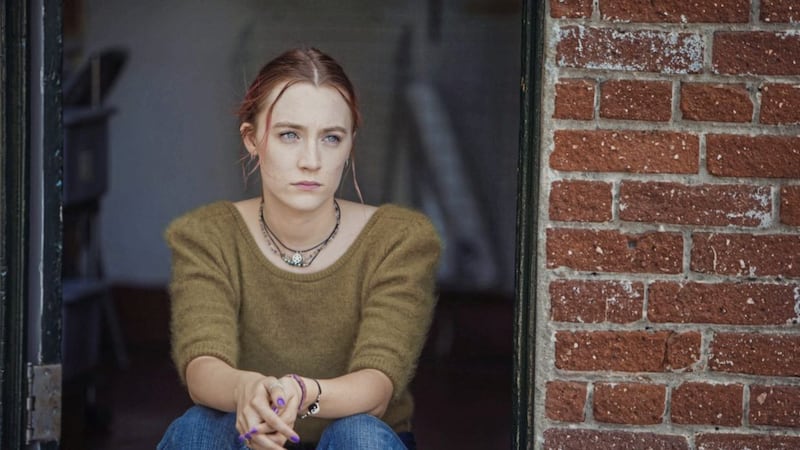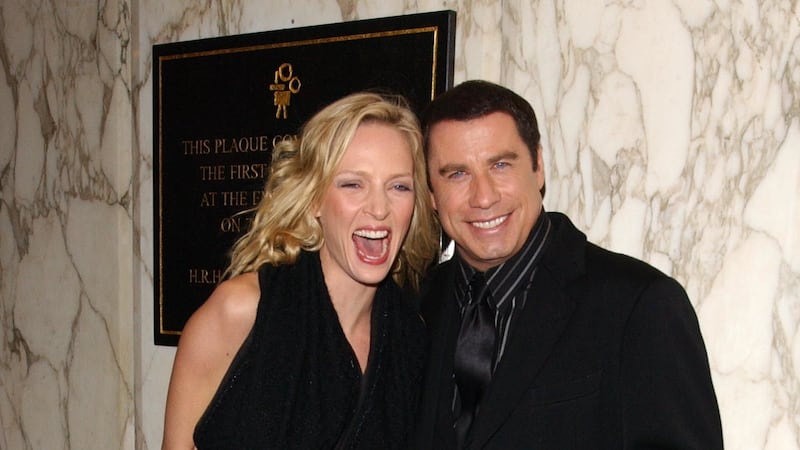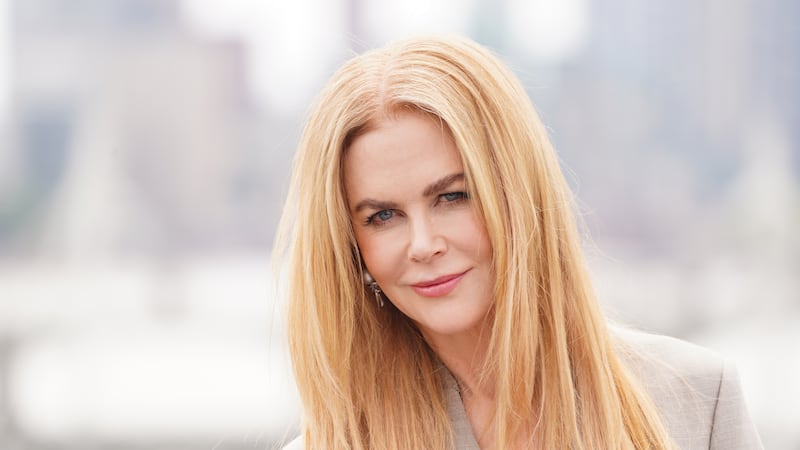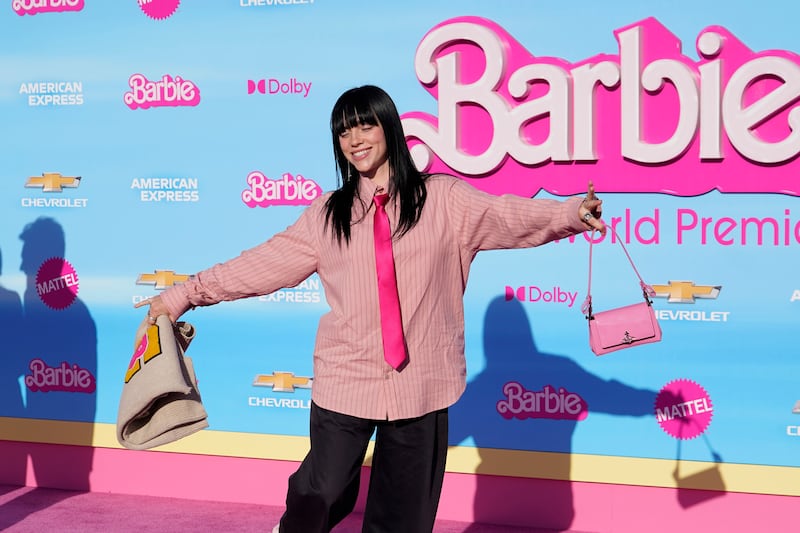SOMETHING silently revolutionary happens in Lady Bird, a five-times Oscar-nominated coming-of-age film about a teenage girl growing up in northern California in 2002.
Its star, Irish actress Saoirse Ronan, does not cover up her problem skin. It's not a plot point, it's not mentioned, it's just there. The truth of being a young girl is shown on the big screen in a world where stars frequently hide beneath inches of make up and flaws are painstakingly eradicated through airbrushing.
In the scores of images of beautiful actresses we see every day on screen, it is hard to recall many like that one.
"I started to get bad skin when I was about 21," Ronan, who lives in Co Wicklow, explains. "And I was doing a lot of press and I did a play and my skin was just under so much strain and I started to get acne. I had never had it before and for whatever reason I wasn't insecure and self-conscious about it.
"I went into Lady Bird and we were doing camera tests – we were still figuring out her hair and make-up and the whole thing – and while we were doing them, the hair and make-up girls and Greta asked me if I would consider not covering them up so much.
"I just thought it would have been a missed opportunity to not represent teenagers as they actually are. And I also don't think it takes anything away from her either.
"You should do it – if you can and you've got the materials to do it, do it."
The effect is subtly powerful. It helps make Ronan, who was born in The Bronx area of New York to Irish parents and raised in Carlow and Dublin, completely believable as a schoolgirl, who has given herself the nickname Lady Bird in a bid to be different and mark herself out as special in a town she says she finds dull.
The film is the solo directorial debut for actress Greta Gerwig, the indie darling best known for roles in Frances Ha, Mistress America and Greenberg, films helmed by her boyfriend Noah Baumbach.
At just 34, Gerwig is now only the fifth female director to be nominated for an Oscar, but Ronan is hopeful that a change is coming for female film-makers.
"There has to be," stresses Ronan, who won a Golden Globe and been nominated for a Best Actress Academy award for her role in Lady Bird. "I really do think there is. I think with Lady Bird and with Wonder Woman as well [which was directed by Patty Jenkins], because it was such a huge hit and such a big blockbuster, there will be a change.
"The conversation is just too big now to go away. And first and foremost, the best material has to be the stuff that gets made.
"But in order to make it as diverse as possible women, for example, need to be able to get a meeting with an executive and go, 'Here's my piece of work – now decide what you will, whether you think it's good or not'. But there needs to be the option, at least."
Ronan, who is 23, is an old hand at the Oscar game and Lady Bird has scored her a third nomination. She was only 13 when she starred as Briony Tallis in Atonement, a role that bagged her the first nod, making her one of the youngest stars ever to receive such an accolade.
The second came in 2016 when she was 21, for her portrayal of an Irishwoman who emigrates to New York in the film adaptation of Colm Toibin's novel Brooklyn, and now the third is for Lady Bird, a project that has meant a great deal to her.
The film centres on two of Lady Bird's female relationships – with her mother Marion, played by Laurie Metcalf , and with her best friend Julie, played by Beanie Feldstein, the sister of actor Jonah Hill, as well as her dalliances with two disappointing teenage boys, played by Lucas Hedges and Oscar nominee Timothee Chalamet.
Watching the movie back after filming had wrapped, much of it felt remarkably familiar to her.
"I've watched it twice; the first time I watched it was with my best friend, so my Julie, and then I watched it with my Marion," the actress says.
"So even though my relationships, more so with me and my mam, are quite different to her and her mother, when they go shopping, or her and Julie are just having a laugh, that's something we can all relate to."
Another relationship that has clearly meant a lot to her is the one she has with Gerwig.
It's almost impossible to find a photograph where they aren't staring adoringly at each other and while it is not uncommon for stars to disingenuously rave about their collaborators, they clearly are not lying.
"She was a collaborator, and you don't always get that," Ronan raves. "I think for someone to be that open to the people they're working with, on their very first film, is really impressive and really special.
"She's worked with so many other brilliant film-makers over the years that she's taken so much from that and learned so much from that, and was just so ready to do this.
"It kind of felt like this was always something she was supposed to do, so it was really special to make it with her. I was a fan of hers anyway, but then to watch her deliver it to the world has been even better."
While it is set in 2002 and is a quasi-autobiographical telling of Gerwig's own upbringing in Sacremento, stories by and about women feel particularly important to Ronan right now, given the current climate in Hollywood.
The movie received a rapturous reception at film festivals last year and has a near perfect score on review aggregating website Rotten Tomatoes following its release in the US.
"The type of films that have come out over the last year are a reflection on the massive, massive changes that we've all gone through in the last couple of years, politically and otherwise," she says.
"The likes of Brexit and Trump and all this stuff has really affected all of us and our creativity and needing to go 'I have to say something'. I think people were hungry for a film like this, without even realising it. And when it came along, the reaction we got to it was sort of like 'Why weren't we doing this all along?'
"And it's because, really, women wouldn't have got in the door in the past. Going 'I want to make this film about a teenage girl' just wouldn't have been plausible. But now? This feels like the right time."
:: Lady Bird is showing at QFT Belfast on Wednesday February 21 and there and in cinemas across Northern Ireland from Friday February 23.








